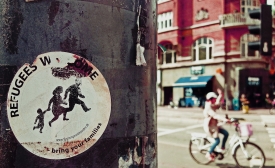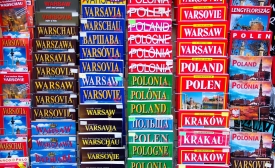european union
The European Union has launched the ‘2016-2020 Human Rights and Democracy Country Strategy’ for Papua New Guinea. [...] The priority areas are to promote a Human Rights culture in PNG society; support the ratification and implementation of Human Rights international conventions and instruments; and strengthen good governance, democracy and rule of law.
The embassy tours will take place this weekend on a first-come, first-served basis and are part of Heritage Open Days, England’s annual festival of history, which will see thousands of places open their doors. [...] As well as the embassy tours, the trust has launched Europe and Us in 99 Objects and on 17-18 September will hold a weekend of events at Mount Stewart [...] exploring the history and politics of British diplomacy.

What happens when the government is sending one message, and citizens are sending another?
Russian President Vladimir Putin described “soft power” in 2012 as “a matrix of tools and methods to reach foreign policy goals without the use of arms but by exerting information and other levers of influence.” His government has used state-owned media outlets like RT, formerly known as Russia Today, and other pro-Kremlin organizations to bend public opinion in other countries toward Russia.

Is Poland a viable brand?
On his last day in Downing Street, David Cameron said one of his proudest achievements was to honour the commitment to spend 0.7% of gross national income on international aid. It was partly an attempt to stake out his legacy and partly a pitch to his successor, Theresa May, to stick to, what remains, a Conservative manifesto pledge.
European Union Ambassador Roland Kobia is upbeat about prospects of stepped up engagement between the EU and Myanmar following the new Myanmar government coming to power. In the following interview conducted recently with Mizzima Editor-in-Chief SoeMyint, EU Ambassador Kobia talks about engagement, trade and investment, the peace process, and the development of Myanmar.
There were controversies in terms of migration created by individuals outside of the official “Vote Leave” campaign. Yet, contrary to a widely held belief, migration was never the primary issue: the economy was a greater concern. The aforementioned ORB poll showed that 52% of respondents believed the economy to be more important than immigration.







